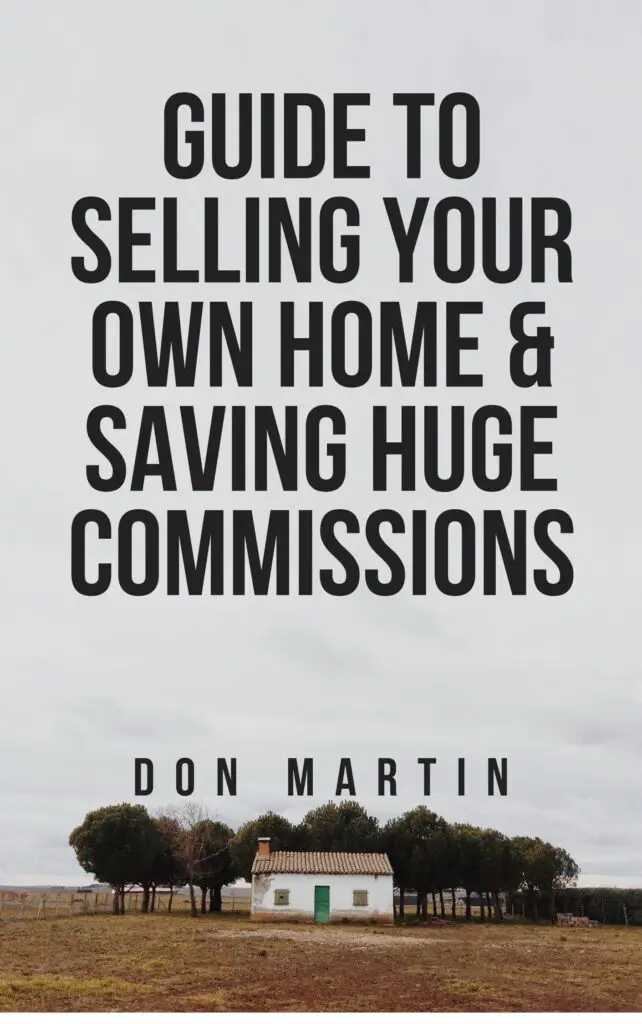Our FSBO & DIY real estate newsletter puts the best products, updates and advice in your inbox. Get it here- EASY MONTHLY NEWSLETTER
The US Govt says:
Credit Scores
A credit score is a number that rates your credit risk. It can help creditors determine whether to give you credit, decide the terms they offer, or the interest rate you pay. Having a high score can benefit you in many ways. It can make it easier for you to get a loan, rent an apartment, or lower your insurance rate.The information in your credit report is used to calculate your credit score. It’s based on your:
- Payment history
- Outstanding balances
- Length of credit history
- Applications for new credit accounts
- Types of credit accounts (mortgages, car loans, credit cards)
It’s important to make sure your credit report is accurate, so your credit score can be too. You can have multiple credit scores. They’re not calculated by the same credit reporting agencies that maintain your credit reports. Instead, they’re created by different companies or lenders that use their own credit scoring system.
Your free annual credit report does not include your credit score, but you can get your credit scorefrom several sources. Your credit card company may give it to you for free. You could also buy it from one of the three major credit reporting agencies. When you receive your score, you often get information on how you can improve it.
Experian says:
How Can I Check Credit Scores?
Highlights:
- Credit reports from the three nationwide credit bureaus do not usually contain credit scores
- You may be able to get a credit score from your credit card company, financial institution or loan statement
- You can also use a credit score service or free credit scoring site
Many people think if you check your credit reports from the three nationwide credit bureaus, you’ll see credit scores as well. But that’s not the case: credit reports from the three nationwide credit bureaus do not usually contain credit scores. Before we talk about where you can get credit scores, there are a few things to know about credit scores, themselves.
One of the first things to know is that you don’t have only one credit score. Credit scores are designed to represent your credit risk, or the likelihood you will pay your bills on time. Credit scores are calculated based on a method using the content of your credit reports.
Score providers, such as the three nationwide credit bureaus — Equifax, Experian and TransUnion — and companies like FICO use different types of credit scoring models and may use different information to calculate credit scores. Credit scores provided by the three nationwide credit bureaus will also vary because some lenders may report information to all three, two or one, or none at all. And lenders and creditors may use additional information, other than credit scores, to decide whether to grant you credit.
So how can you get credit scores? Here are a few ways:
- Check your credit card, financial institution or loan statement. Many credit card companies, banks and loan companies have started providing credit scores for their customers. It may be on your statement, or you can access it online by logging into your account.
- Purchase credit scores directly from one of the three major credit bureaus or other provider, such as FICO.
- Use a credit score service or free credit scoring site. Some sites provide a free credit score to users. Others may provide credit scores to credit monitoring customers paying a monthly subscription fee.
In addition to checking your credit scores, it’s a good idea to regularly check your credit reports to ensure that the information is accurate and complete
You’re entitled to a free copy of your credit reports every 12 months from each of the three nationwide credit bureaus by visiting www.annualcreditreport.com. You can also create a myEquifax account to get six free Equifax credit reports each year. In addition, you can click “Get my free credit score” on your myEquifax dashboard to enroll in Equifax Core Credit™ for a free monthly Equifax credit report and a free monthly VantageScore® 3.0 credit score, based on Equifax data. A VantageScore is one of many types of credit scores.
If you find information you believe is inaccurate or incomplete on your credit reports, contact the lender or creditor. You can also file a dispute with the credit bureau that provided the report. At Equifax, you can create a myEquifax account to file a dispute. Visit our dispute page to learn other ways you can submit a dispute.
How and Why You Want Great Credit Scores
Are you looking to improve upon your credit score? If so, you are being very wise, as they affect so many aspects of our lives from a financial perspective. A good credit score is important when you are looking to buy or rent a home.
Lenders and landlords use credit scores to judge whether you will be an acceptable risk. But what is a good credit score?
Let’s take a look at what is considered good and how you can achieve it. The quicker you improve your credit scores, the better off you will be done the road when it really matters.
What is a Good Credit Score?
Credit scores range between 300 and 850. If you have a score above 700, this will be considered good. An exceptional score is above 800 and will give you access to the best interest rates and offers from lenders. The higher your score is, the more confident a lender will be that you present a low risk to them.
Credit scores are used for many different situations, not only when buying or renting a home. Therefore, it is important to make sure your credit score is as good as it can be so that you pay less interest on any loan you take out.
What to Know About FICO Credit Scores
The FICO scoring system, created by the Fair Isaac Corporation, is probably the credit score most people think of when the subject is mentioned. It is used by many lenders, and the credit scores range from 300 to 850, with 670 being considered good.
With a score between 300 and 579, you may find it difficult to be approved for credit or have to pay an additional fee. This is considered an abysmal rating, and around and around 16% of people fall into this category.
A fair rating is a score between 580 and 669. If you try to get a mortgage, you will be seen as a subprime borrower if you have this score, and 17% of people find themselves in this situation.
With a FICO score of between 670 and 739, you fall into the good category. You will find it easier to get credit with a score in this range, and over 20% of U.S. citizens fall into this classification.
Between 740 and 799, you are rated as very good. A quarter of people applying for credit are in this range, and they are likely to get better interest rates as a consequence.
With a score between 800 and 850, you are given an exceptional rating and will get the best interest rates from lenders. 21% of people fall into this range.
Our FSBO & DIY real estate newsletter puts the best products, updates and advice in your inbox. Get it here- EASY MONTHLY NEWSLETTER
What to Know About VantageScore
A less well-known credit scoring system is VantageScore. It was developed by the three best-known credit bureaus, Equifax, Experian, and TransUnion. The most up-to-date version of this scoring system also uses a range between 300 850 to classify applicants.
You won’t be very likely to get approval for credit with a score below 499. This is considered very poor, and 5% of people fall into this range.
A score of between 500 and 600 is still considered poor, which affects 21% of people. While you could still get credit with a score, these low-interest rates are not likely to be favorable. The lender may also need you to pay a larger down payment as well as having other conditions.
A fair rating is considered to be someone with a score between 601 and 660. While you might be approved for credit, interest rates won’t be particularly competitive.
The largest group of Americans, around 38%, fall into the good category of between 661 and 780. You stand an excellent chance of being approved for credit with competitive rates if you are in this range.
Anything above 781 will put you in the excellent rating category. This will give you access to the best rates and best terms when looking for credit. The three credit bureaus: Equifax, Experian, and Transunion, use slightly different financial data to analyze consumers.
Why Are Credit Scores So Important?
Credit scores are sometimes referred to as risk scores. This is because they are used to determine how likely it is you are going to repay the loan.
The best way of determining how someone will act in the future is to look at how they have acted previously. If you have a past that is full of missed payments and bad credit decisions, it is expected you will continue this pattern. This gives lenders an easy way to discover if you will be high risk or not.
Credit scores aren’t the only factors that affect the decision by the lender, however. Your debt to income ratio is something else that is also looked at to determine if you are going to be a safe risk or not. Lenders will use your credit score as part of their central decision of granting a mortgage preapproval.
The credit score you need to buy a home will depend on the mortgage program and lender you use. Some mortgage programs are less strict about credit scoring than others.
It is vital to know this when your credit scores are below average. An excellent mortgage broker will counsel you on what programs will work best for your situation.
You will also have trouble renting an apartment when you have bad credit as well. Hopefully, you are getting the picture on just how powerful a credit score can be.
Factors that Impact Your Credit Score
Your payment history plays the biggest part in influencing your credit score with both scoring systems. You need to avoid late payments if you want to have a good credit score.
The credit accounts you have, how old they are, and the amount you use them also plays a big role in making up your credit score. The amount of debt you have is also something that is a fairly large part of your credit score.
Less important factors that can affect your overall score include newly opened credit accounts and hard inquiries on your credit report.
Factors that Don’t Alter Your Credit Score
Your race, religion, age, location, or origin, cannot be used in credit scoring formulas. They also aren’t allowed to consider your gender or marital status in the credit score calculation.
Your employment doesn’t factor in the credit score either. Though a lender may look at this when deciding on your application.
Any soft inquiries on your credit report aren’t factored in either. These are different from the hard inquiries that will be made when you apply for credit.
Powered by Foreclosure.com
How Can I Improve My Credit Score?
If you aren’t happy with your credit situation, you can do a few things to improve it.
One of the biggest things you can do is to make sure you make all your credit payments on time. If you have any liens or bankruptcies in your financial history, dealing with these will improve your score.
Reducing the amount of debt you have is also a good idea. You want to avoid using all of your available credit, sticking to around 30% utilization of your maximum borrowing is advised.
Check on Your Credit Scores
When you have lofty goals, such as buying a home or a car, it is essential to keep track of your credit scores. By doing so, you will be able to have some checks and balances for improving them.
You can get a free credit report once a year from each of the three credit bureaus. A smart thing to do would be to get a credit report from each of the 3 companies every four months. That way, you can cover the entire year for free.
It makes sense to be vigilant about checking your credit report for errors, as they can negatively impact your scores. If you do find credit mistakes, you’ll want to jump on getting them corrected immediately.
Final Thoughts on Good Credit Scores
Your credit score impacts so many aspects of your financial life. It pays to work on increasing your credit score as early as you can. Hopefully, after reading, you realize just how critical credit scores are in all aspects of your life. Those who pay attention to bumping up their credit scores will reap many benefits.
Photo by CardMapr on Unsplash
Awesome content straight to your inbox. Click or tap here!
(This post may contain affiliate links, which means if you click, or make a purchase by clicking on them, I may receive a small commission, at no additional cost to you, that will help me continue to bring you valuable content. To that end, not all of the items on this page are affiliate links, as that is not a requirement to be on this page. Thanks for your support!)
We are a participant in the Amazon Services LLC Associates Program, an affiliate advertising program designed to provide a means for us to earn fees by linking to Amazon.com and affiliated sites.













